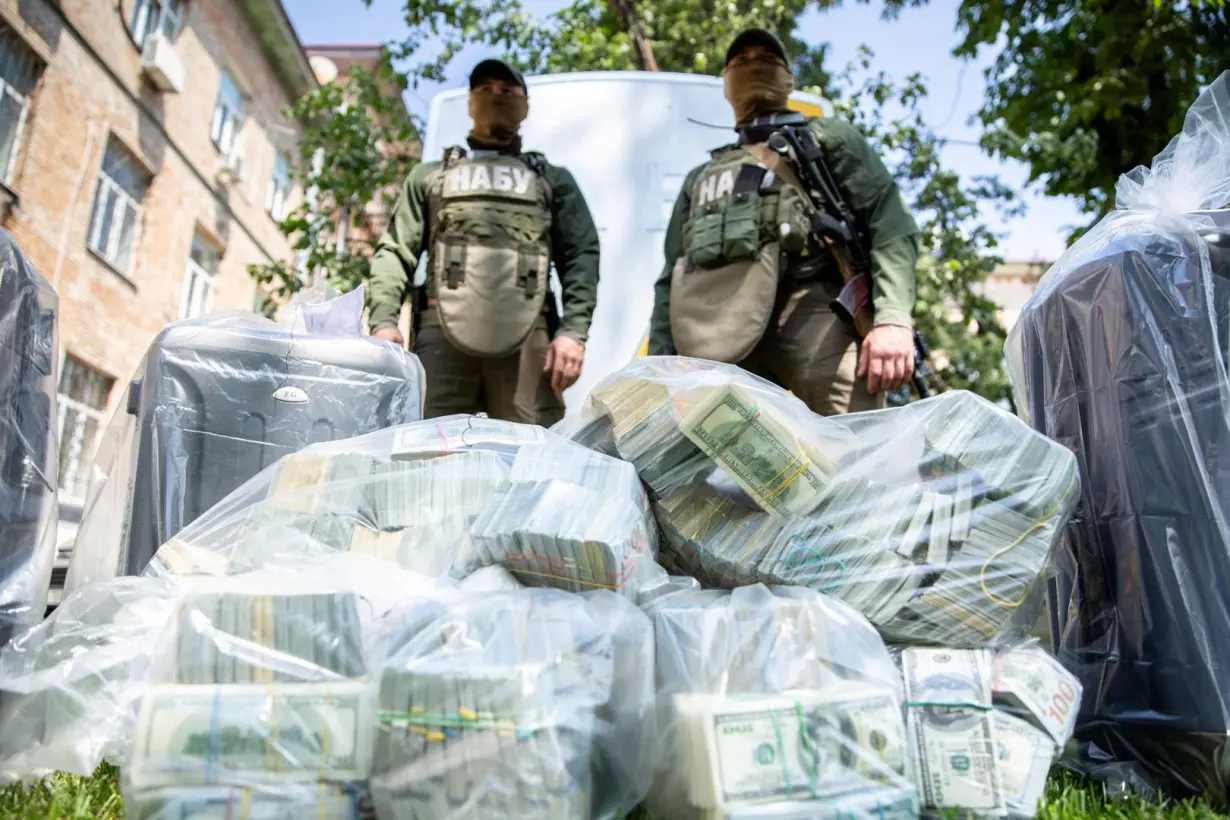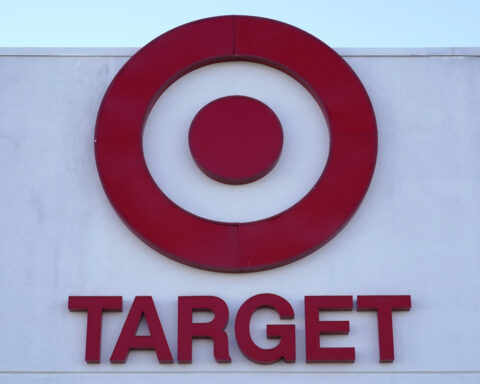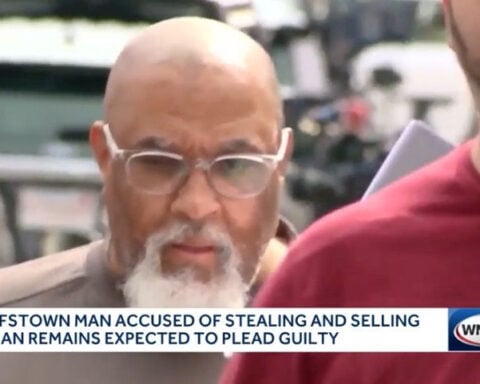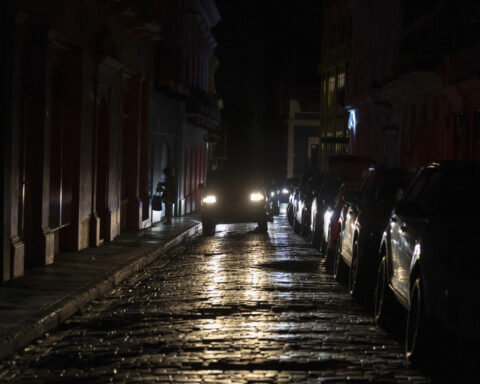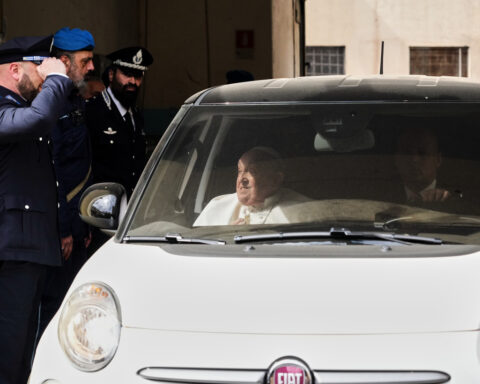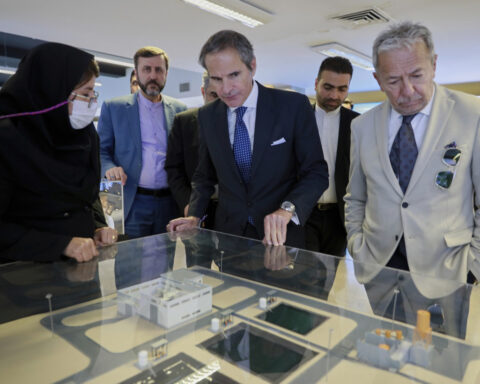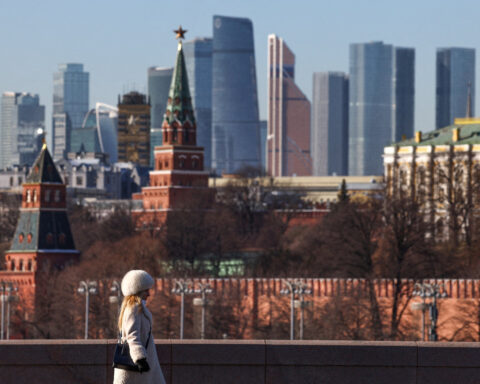By Dan Peleschuk
(Reuters) - When he was asked to approach Ukrainian investigators with a $5 million bribe on behalf of a former top official in 2020, businessman Yevhen Shevchenko would have been entitled to a cut as the middleman.
This month, he finally received his money - but from the Ukrainian government, in exchange for reporting the kickback to anti-corruption police and setting up a sting operation.
Shevchenko is one of Ukraine's first two whistleblowers to receive a state payout for their role in helping bring a crooked official to justice, part of a corruption crackdown that has taken on greater importance during the war with Russia.
Also this month, a defence ministry official was awarded the equivalent of around $40,500 for reporting a bribe offered in 2021 in exchange for a favourable audit of a ministry contractor.
Officials hope the practice of offering bounties, introduced in 2019 but implemented only recently, will bolster an effort that is key to Ukraine's ambition to join the European Union.
Authorities have stepped up their campaign against corruption, launching investigations against ministers and former presidential advisers.
Ukraine ticked up in Transparency International's latest Corruption Perceptions Index, ranking 104th out of 180 countries. Public tolerance for graft has also plummeted as Russia's invasion saps precious resources.
But sleaze remains widespread, with traditionally weak state institutions proving easily exploited and stubbornly resistant to reform. High-level corruption is particularly corrosive, watchdogs believe.
The bounties are designed to address that threat, applying only to cases where the figure in question - either the sum of the bribe or the potential damages to the state - exceeds 5,000 times the monthly minimum subsistence level, currently around $73.
The practice sends a powerful signal to would-be whistleblowers and state institutions, according to Anastasia Renkas of the National Agency on Corruption Prevention, a state watchdog.
"If people know their rights, then every organisation will begin reckoning with the fact that people could start making use of those rights," she said.
Whistleblowers are entitled to 10% of the amount in their cases once convictions are handed down, with rewards capped at $500,000.
In a separate effort, lawmakers on Tuesday updated regulations around plea agreements in corruption cases which experts say could also help ensnare more high-profile suspects.
'MOTIVATIONAL TOOL'
The cases of Shevchenko and the defence official both concluded last year, but payouts were only earmarked for the first time in the 2024 budget.
Shevchenko, who had previously worked with Ukraine's anti-corruption police as an informant, received the equivalent of around $320,000.
He believes bounties are a strong "motivational tool" that could compel civic-minded, though needier Ukrainians close to major graft - such as drivers or maids - to report wrongdoing.
"There is a very large number of people who can help uncover crimes but don't because they're afraid, or for some other reasons," he said.
In addition to codifying bounties more firmly in the law, NACP, the state watchdog, has launched an online portal allowing public-sector employees to anonymously report suspected corruption at work.
More than 4,000 reports have been submitted since last year, though so far only a small fraction - 47 - were found to have involved concrete criminal or administrative violations.
Renkas acknowledged that many Ukrainians remain hesitant to report corruption because of the personal risks, so her agency is also working on boosting legal protection for whistleblowers.
The overall goal, she says, is to challenge how Ukrainians have traditionally thought about corruption. "The bad guy is not the whistleblower, but the one who commits the crime and dictates those kinds of rules."
(Reporting by Dan Peleschuk; Editing by Tom Balmforth, Mark Heinrich and Ros Russell)

 Trump has begun another trade war. Here's a timeline of how we got here
Trump has begun another trade war. Here's a timeline of how we got here
 Canada's leader laments lost friendship with US in town that sheltered stranded Americans after 9/11
Canada's leader laments lost friendship with US in town that sheltered stranded Americans after 9/11
 Chinese EV giant BYD's fourth-quarter profit leaps 73%
Chinese EV giant BYD's fourth-quarter profit leaps 73%
 You're an American in another land? Prepare to talk about the why and how of Trump 2.0
You're an American in another land? Prepare to talk about the why and how of Trump 2.0
 Chalk talk: Star power, top teams and No. 5 seeds headline the women's March Madness Sweet 16
Chalk talk: Star power, top teams and No. 5 seeds headline the women's March Madness Sweet 16
 Purdue returns to Sweet 16 with 76-62 win over McNeese in March Madness
Purdue returns to Sweet 16 with 76-62 win over McNeese in March Madness
